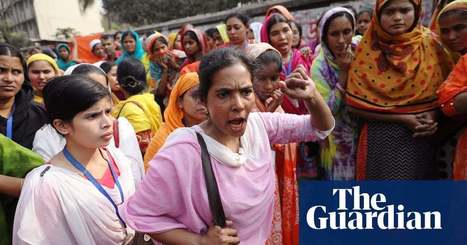Editorial: Globalised business networks make well-meaning shoppers complicit in the exploitation of workers they are trying to help
Research and publish the best content.
Get Started for FREE
Sign up with Facebook Sign up with X
I don't have a Facebook or a X account
Already have an account: Login
A collection of articles relating to the 'international' elements of Economics and relating to IB, Pre-U and A-Level Economics.
Curated by
Graham Watson
 Your new post is loading... Your new post is loading...
 Your new post is loading... Your new post is loading...
Katy Pineda's curator insight,
January 24, 2019 2:30 PM
Individuals in Bangladesh who are making the Spice Girls and Comic Relief shirts are being paid less than the local minimum wage. Bangladesh is such a popular area to operate because the individuals who are making the products are very skilled in clothing manufacturing and they offer cheap labor.
Unfortunately because they are getting paid so little, many workers feel the need to work overtime just to make ends meet. There are fire regulations and laws set in place but since there are so few inspectors, many inspections are not completed. The workers are aware of many issues but feel scared to report them due to retaliation. |
|













And the Guardian editorial on the issue...